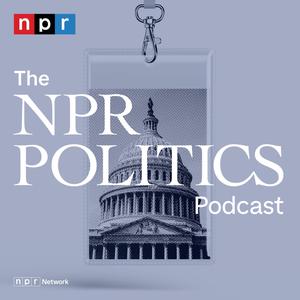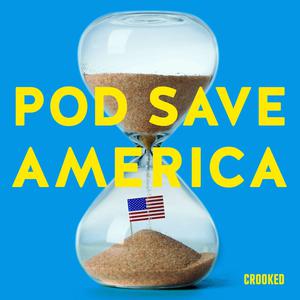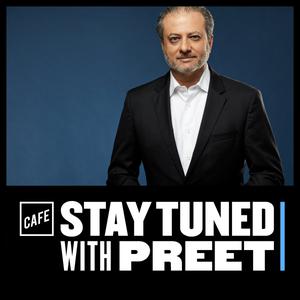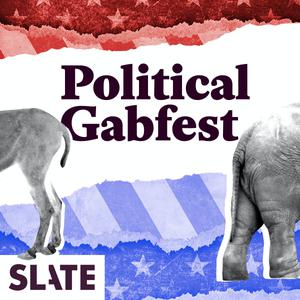
PODCAST-19: FiveThirtyEight on the Novel Coronavirus
FiveThirtyEight.com
FiveThirtyEight's COVID-19 podcast is laser-focused on evidence. What do we know about the novel coronavirus, and what do we know we don't know? COVID-19 has pushed Americans into more uncertain territory than most have ever known. Our podcast helps listeners understand what they can be certain about, and what is still unknown. We investigate coronavirus mysteries, debate when it's safe to reopen the economy and keep track of the latest scientific developments on vaccines and treatments. We do it all with FiveThirtyEight's trademark blend of transparency and rigor.
- 10 minutes 58 secondsPandemics Don't Really End
But podcasts about them do. We're sad to report this is the final episode of PODCAST-19! It's been so rewarding making a show for you over the past year. In this episode, we discuss why we're closing up shop and why pandemics are so hard to beat.
14 July 2021, 10:39 pm - 12 minutes 35 secondsHow The CDC's Blindspots Complicated The Fight Against COVID-19
The CDC wants to be certain, so it typically waits for a critical mass of scientific evidence before making declarative statements. That takes time. Yet the communication to the public in this pandemic seemed to be worse than normal, and resulted in a huge loss of public trust. Over the past month, we spoke to nearly a dozen scientists who all agreed the CDC could have done better. But the root causes of the CDC’s shortcomings will be hard to fix.
30 June 2021, 4:45 pm - 14 minutes 17 secondsThe Lab Leak Commotion
We have no hard evidence to support the idea that the novel coronavirus was leaked from a lab, let alone a smoking gun to validate that hypothesis. But despite pushback on this story from many scientists and the media early on, it’s back in the news, and many are talking about the possibility of a lab leak. There may be some legitimate reasons to do more digging, but the debate has gotten heated. And when a conversation is centered around controversy, instead of science, we can lose sight of the bigger, more important picture.
2 June 2021, 8:48 pm - 17 minutes 42 secondsWho Should Decide Who Gets To Make COVID-19 Vaccines?
There's a worldwide shortage of vaccines but plenty of factories standing by to make them. Why is there such a gap between what we need and what we can make? On this week's episode, we explore the surprisingly wild world of pharmaceutical patent law to understand how our system came to be and how it has shaped the pandemic.
22 May 2021, 12:36 am - 7 minutes 38 secondsHow To Make Sure Your Kid Isn't A Superspreader
Kids can't get a COVID-19 vaccination yet, but they're unlikely to develop serious complications from the disease. But they can still be vectors to spread COVID-19 to others who are likely to get very sick. On this week's episode, we look into how big of a risk unvaccinated kids pose to society, and what parents should keep in mind.
7 May 2021, 11:31 am - 12 minutes 5 secondsYou Might Have Given The Coronavirus To Your Cat
We've learned time and again that animals can give diseases to humans. We've seen this happen with coronaviruses, the flu, Ebola -- basically most major disease outbreaks in recent memory. But, of course, the reverse is true too: Humans can give viruses, including the novel coronavirus, to animals. FiveThirtyEight’s senior science writer Maggie Koerth wrote about this on the site earlier this week, and she joined PODCAST-19, FiveThirtyEight’s coronavirus podcast, to discuss her work further.
28 April 2021, 9:18 pm - 16 minutes 12 secondsWhat A Donated Vaccine Can Do
The United States has a surplus of COVID-19 vaccines — more than enough to vaccinate every adult. Poor countries, however, are still struggling to secure doses. Should those vaccines be sent to countries in need? If not, who will do the sending? And should rich countries profit off the exchange?
22 April 2021, 6:47 pm - 14 minutes 19 secondsThe Johnson & Johnson Pause Shows The System Is Working
Federal health agencies asked states to pause in their use of the Johnson & Johnson vaccine while U.S. officials investigate reports of an extremely rare blood-clotting syndrome that has developed in six people who have received the vaccine. Given how few people are sick, why did the U.S. recommend a pause? And what's it say about how the monitoring system is working?
13 April 2021, 10:06 pm - 15 minutes 29 secondsWhat The Heck Is Going On With AstraZeneca's Vaccine?
The AstraZeneca COVID-19 vaccine has been hailed as the world’s vaccine -- it’s inexpensive to produce and doesn’t need super-cold storage like the mRNA vaccines do. But its rollout has been messy. Will its missteps erode the public's (or the FDA's) trust? Maggie Koerth joins to discuss.
26 March 2021, 9:37 pm - 27 minutes 30 secondsHow To Overcome Vaccine Hesitancy
At some point, the U.S. is going to run out of people eager to get the vaccine, and we’ll need to work hard to convert those who are still hesitant or don’t know how to get it. It won’t be the first time we’ve done so. For months, community leaders have been working to overcome transportation challenges, language barriers, and digital divides. We speak to five of those leaders on this week's episode to hear how they convinced people to get the vaccine, and what that might mean for the months to come.
22 March 2021, 6:45 pm - 22 minutes 33 secondsThe COVID-19 Endemic
On this week's show, we discuss what the endgame of the pandemic will be. It likely isn't herd immunity. And if herd immunity isn't the goal, does that change how people should behave once they're vaccinated? We have a science-backed guide for how to evaluate what's risky and what's safe among the vaccinated.
6 March 2021, 1:15 am - More Episodes? Get the App
Your feedback is valuable to us. Should you encounter any bugs, glitches, lack of functionality or other problems, please email us on [email protected] or join Moon.FM Telegram Group where you can talk directly to the dev team who are happy to answer any queries.
 The NPR Politics Podcast
The NPR Politics Podcast
 FiveThirtyEight Politics
FiveThirtyEight Politics
 Pod Save America
Pod Save America
 The Daily
The Daily
 Stay Tuned with Preet
Stay Tuned with Preet
 Political Gabfest
Political Gabfest